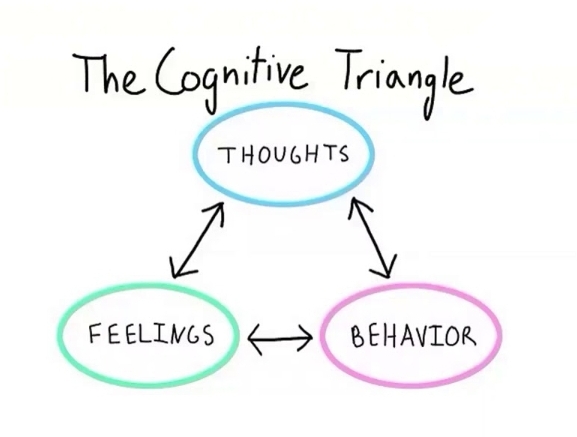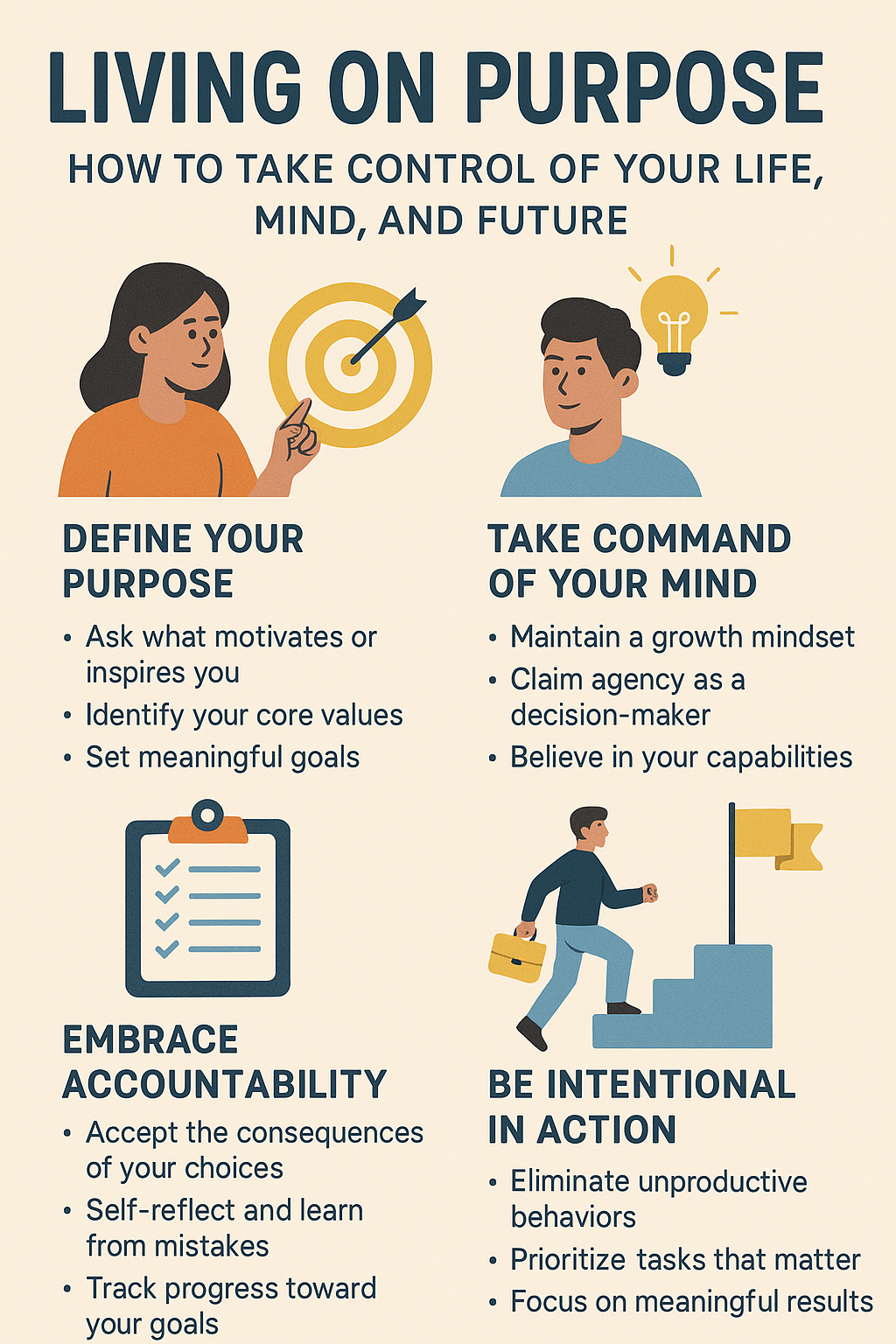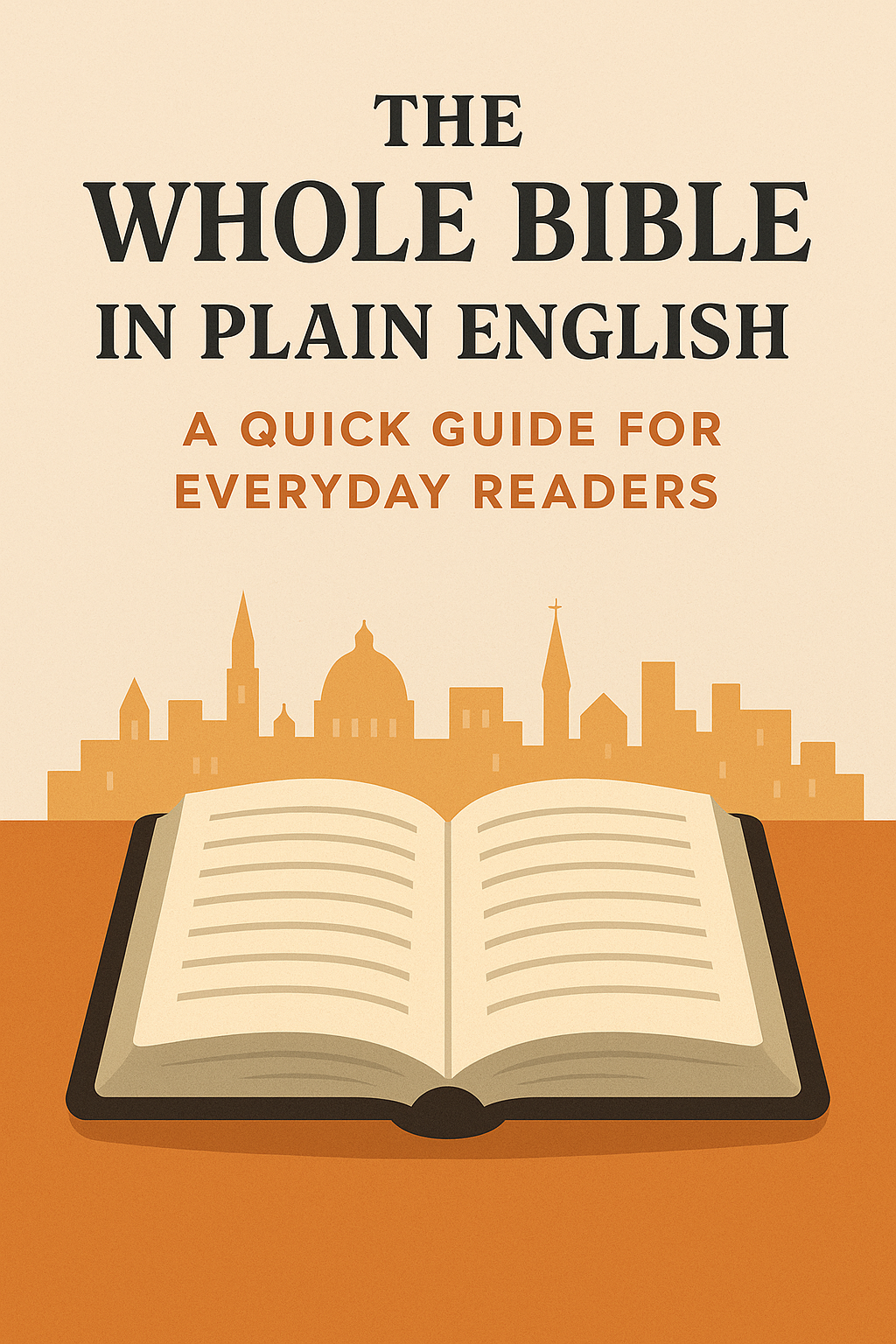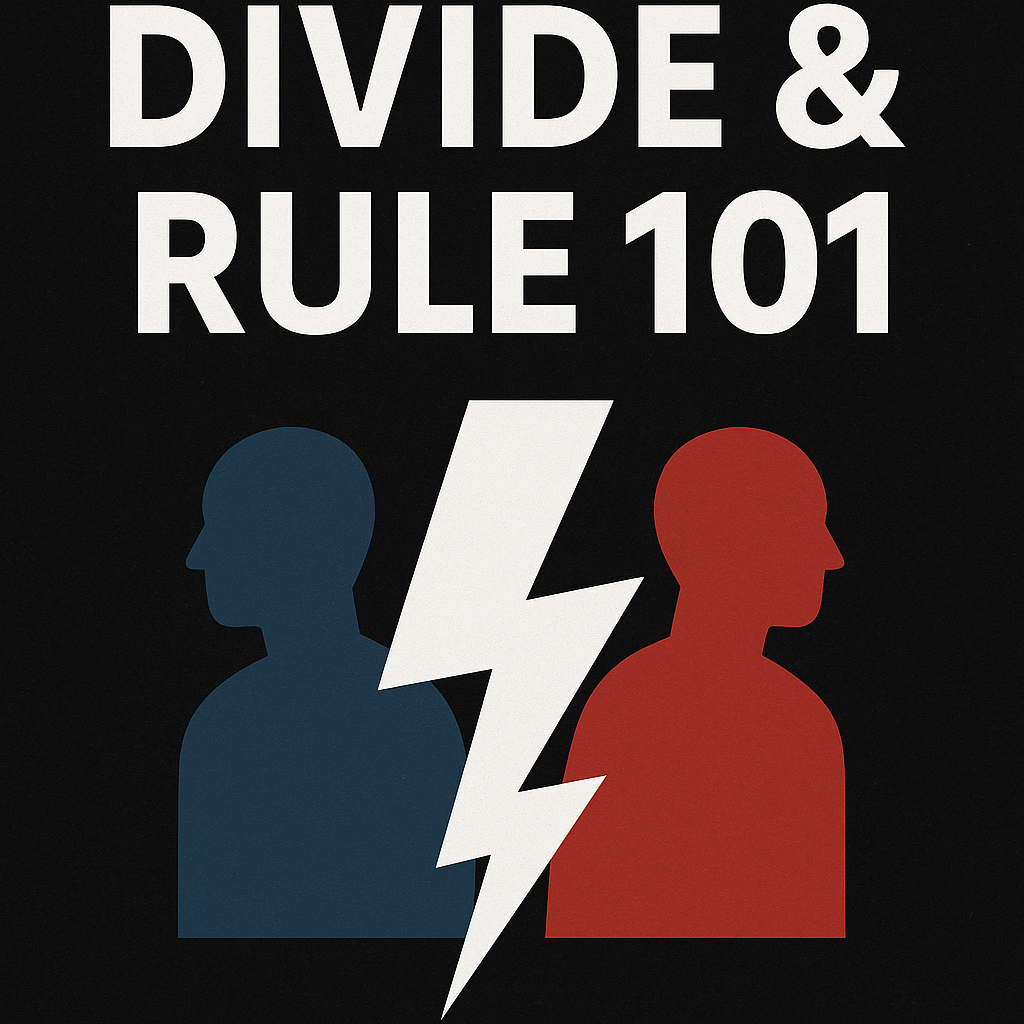In a world where most people drift through life reacting to circumstances, Dr. Paul H. Jenkins offers a transformative message: you can live on purpose. That means taking control of your thoughts, feelings, and behaviors instead of letting life push you around. It means abandoning the victim mindset and becoming an agent of change. And it all begins with understanding how your brain works—and how to retrain it.
The Game That Proves a Point
Dr. Jenkins opens with a simple counting game, designed to illustrate that knowledge is only potential power—it becomes actual power when applied. Knowing how to win the game makes you powerful, but failing to apply that knowledge leaves you powerless. The same principle applies in life.
Neural Pathways: Your Brain’s Cruise Control
The human brain runs nearly every function automatically—heart rate, digestion, movement, speech, even complex tasks like typing or driving. This is thanks to neural pathways, the brain’s shortcut system.
Neural pathways form through repetition and meaning. The more you do something, the more your brain automates it. That’s great when it comes to brushing your teeth. But it’s problematic when your automated responses are negative—like thinking, “I can’t,” “I’m worthless,” or “Life is against me.”
To change your life, you must first become aware of these automatic patterns—and then build new, healthier ones.
Why Change Feels Hard
Changing a neural pathway is like digging a new ditch to redirect a river. Your brain resists. It wants to default to the old, familiar pattern—even if that pattern is harmful. But with meaningful motivation and deliberate repetition, you can reshape your mental habits.

The Cognitive Triangle: Think, Feel, Do
Dr. Jenkins outlines the foundational concept of cognitive behavioral theory, which asserts that your thoughts, feelings, and behaviors are interconnected. Change one, and you affect the others. Most people believe that their feelings just “happen” because of what’s going on around them. But Jenkins flips this by teaching:
“You don’t feel what happens to you. You feel what you think about what happens to you.”
The A-B-C-D-E Model: Rewiring Your Emotions
Jenkins illustrates this with a powerful acronym:
- A – Activating Event (something that happens)
- B – Belief about the event
- C – Consequent Emotion
- D – Disputation (challenge the belief)
- E – Effective, rational new belief
The key insight? It’s not the event that causes your emotion—it’s your belief about the event. If you can change the belief, the feeling follows automatically.
Live on Purpose: Know Your Target
Using the metaphor of aiming a signal mirror from a mountaintop to his brother’s house, Jenkins makes a compelling point: a small adjustment in your aim now can translate into a massive difference over time. But if you don’t know where your brother is—or where your life is headed—you’ll miss the mark.
To live on purpose, you need three things:
- Know where you are.
- Know where you want to go.
- Figure out how to get there.
Paradigm Shift: From Victim to Agent
The centerpiece of Jenkins’ message is a paradigm shift. He outlines two basic lenses through which we can view life:
The Victim Paradigm:
- Life happens to me.
- I blame others.
- I ask “Why me?”
- I avoid challenges.
- I believe there’s never enough.
- I say “I can’t.”
- I consume more than I contribute.
The Agent Paradigm:
- I happen to life.
- I take accountability.
- I ask “Why not me?”
- I face problems head-on.
- I believe in abundance.
- I ask “How can I?”
- I produce more than I consume.
Dr. Jenkins emphasizes that captivity is the inevitable result of victim thinking, while liberty is the inevitable outcome of agent thinking. This isn’t philosophical fluff—it’s a law. You cannot think like a victim and be free. You cannot think like an agent and remain stuck.
Agents vs. Consumers: A Full-Spectrum Contrast
Material and Economic Dimension
Agent/Producer:
- Seeks to create value, not just extract it.
- Builds wealth through productivity, innovation, and service.
- Buys thoughtfully, invests wisely, and gives generously.
- Measures success not by what is possessed but by what is built, provided, or stewarded.
- Treats money as a tool, not a master.
Consumer:
- Seeks possessions for identity, validation, or escape.
- Defines success by what is owned or displayed.
- Spends impulsively, hoards, or constantly upgrades.
- Is often trapped in debt, chasing the next thing.
- Treats money as a source of identity or worth.
Key Quote:
“Too many people spend money they haven’t earned, to buy things they don’t want, to impress people they don’t like.” – Will Rogers
Spiritual Dimension
Agent/Producer:
- Lives with purpose, stewardship, and transcendence.
- Sees life as a mission, not a vacation.
- Gives, forgives, and serves.
- Connects with God or a higher power not to get, but to become.
- Practices gratitude and humility.
Consumer:
- Approaches spirituality transactionally: “What do I get from this?”
- Turns religion into comfort, self-help, or ritual without transformation.
- Easily disappointed when God doesn’t “deliver.”
- Seeks spiritual highs, avoids spiritual discipline.
Biblical Warning:
“They honor me with their lips, but their hearts are far from me…” – Isaiah 29:13
Moral Dimension
Agent/Producer:
- Takes responsibility for choices.
- Aims to do the right thing, even when it’s hard or unseen.
- Lives by principle, not popularity.
- Seeks justice, fairness, and truth.
Consumer:
- Does what is convenient or socially acceptable.
- Compromises character for comfort, gain, or applause.
- Outsources moral authority to media, peers, or ideology.
- Avoids pain or sacrifice required for righteousness.
Key Insight:
“Mercy to the guilty is cruelty to the innocent.” – Adam Smith
Psychological Dimension
Agent/Producer:
- Views life through an abundance and growth mindset.
- Focuses on agency—“What can I do?”
- Practices self-awareness, self-mastery, and responsibility.
- Knows emotions are valid but not sovereign.
Consumer:
- Operates from scarcity and victimhood.
- Blames circumstances, others, or the past.
- Waits for external solutions—pill, policy, person.
- Seeks comfort over character, escape over engagement.
Cognitive Framing:
The Agent says, “How can I?”
The Consumer says, “Why me?”
Emotional Dimension
Agent/Producer:
- Gives love, security, affirmation.
- Learns from emotional pain rather than being defined by it.
- Regulates emotions instead of being ruled by them.
- Builds emotional resilience.
Consumer:
- Feeds off others emotionally: praise, attention, validation.
- Reacts impulsively or defensively to discomfort.
- Avoids introspection or accountability.
- Can become emotionally manipulative or fragile.
Important Distinction:
The Agent loves despite, the Consumer demands because.
Physical Dimension
Agent/Producer:
- Views the body as a vessel and responsibility.
- Exercises discipline with rest, nutrition, sexuality, and stewardship of health.
- Sees physical sacrifice as part of building a meaningful life (e.g., training, labor, fasting).
- Practices mastery over urges.
Consumer:
- Treats the body as an amusement park or idol.
- Seeks comfort, indulgence, or stimulation.
- Avoids physical limits or suffering.
- Often self-medicates with food, sex, or entertainment.
Modern Warning:
“We worship our appetites and call it freedom,” but it is bondage disguised as liberty.
The Foundational Shift: From “What Do I Get?” to “What Can I Give?”
This is the essence of maturity, morality, and meaning.
The Agent sees life as a sacred opportunity to serve, to build, to uplift—even at cost to self.
The Consumer sees life as a marketplace—I take what I like, discard what I don’t, and complain if it’s hard.
The Choice Between Liberty and Bondage
Every day, we wake up with the choice:
- To consume or to create.
- To complain or to contribute.
- To be a victim or an agent.
The Agent becomes free by embracing responsibility.
The Consumer becomes enslaved by refusing it.
As Paul H. Jenkins teaches: You are not a victim. You are a creator. Choose to live on purpose.
The Agent/Producer vs. Victim/Consumer paradigm scales across every level of society—from the individual to the nation. Let’s walk through what each of these postures looks like at the four key levels:
The Individual
Agent/Producer:
- Takes personal responsibility for thoughts, choices, and consequences.
- Asks: “How can I grow? What can I do?”
- Lives by principle, not impulse.
- Builds self-discipline, emotional regulation, and delayed gratification.
- Seeks meaning over comfort.
- Produces more than they consume—spiritually, emotionally, financially.
Victim/Consumer:
- Blames others or circumstances for their condition.
- Asks: “Why me? What’s wrong with the world?”
- Avoids responsibility, commitment, or change.
- Seeks comfort, distraction, or validation.
- Reacts emotionally and impulsively.
- Consumes without creating, expects without effort.
The Family
Agent/Producer Family:
- Parents model ownership, resilience, and self-control.
- Teaches children the connection between effort and reward.
- Upholds truth, trust, and discipline as pillars of love.
- Gives to each other generously—time, energy, forgiveness.
- Solves problems as a team; doesn’t tolerate blame games.
“In our family, we don’t complain—we contribute.”
Victim/Consumer Family:
- Parents blame each other, the system, or their kids.
- Children are over-entitled or under-disciplined.
- Emotional reactivity, unresolved conflict, and blame dominate.
- Consumes entertainment to escape real conversations.
- Avoids hard conversations and shifts responsibility.
“This is just how we are. Nothing we can do about it.”
The Community
Agent/Producer Community:
- Locals serve, volunteer, and take pride in the well-being of all.
- Solves problems through grassroots efforts, mutual aid, and civic courage.
- Fosters entrepreneurship, cooperation, and moral accountability.
- Celebrates contributors—not just influencers.
- Practices interdependence: “I help you because I can, not because I must.”
“We rise by lifting each other.”
Victim/Consumer Community:
- Waits for outside help or blames “the government.”
- Distrusts neighbors, avoids responsibility, resents success.
- Defines fairness as equal outcomes not equal opportunities.
- Consumes more public resources than it replenishes.
- Feeds off outrage and blame rather than ideas and initiative.
“Someone should fix this.”
The Nation
Agent/Producer Nation:
- Promotes liberty through individual responsibility and moral education.
- Encourages innovation, work, and value creation.
- Prioritizes virtue over vice, justice over appeasement.
- Invests in the next generation: education, families, and moral order.
- Produces surplus: economically, culturally, and spiritually.
“Ask not what your country can do for you, but what you can do for your country.” – JFK
Victim/Consumer Nation:
- Trades liberty for entitlements and comfort.
- Normalizes moral relativism and victim identity.
- Encourages dependence on the state rather than strength in the citizen.
- Spends beyond its means, printing money to pacify the population.
- Consumes the moral, spiritual, and economic capital of past generations without replenishing it.
“We deserve more, but shouldn’t have to sacrifice.”
The Result: Freedom or Collapse
- Agents/Producers build civilizations.
- Victims/Consumers erode them.
A society rooted in agency thrives.
A society rooted in victimhood decays—morally, economically, emotionally, spiritually.
Thoughts Are Currency
Your thoughts are not just passing notions—they are mental currency that purchase your reality. If you spend your thoughts on scarcity, fear, bitterness, or blame, your life will reflect that. But if you invest your thoughts in gratitude, possibility, and courage, your life will expand.
“You would never spend money on something you don’t want in your life. So why spend mental currency on thoughts that bring garbage into your life?”
The Final Challenge
Living on purpose means taking ownership. The principles shared—understanding neural pathways, controlling your thoughts, choosing the agent paradigm—can radically transform your life. But only if you apply them.
“Be responsible for your learning. Be responsible for your thoughts. Start making the small adjustments that will lead to freedom, prosperity, and joy.”
You have the power. You’ve always had the power. The question is—will you use it?






